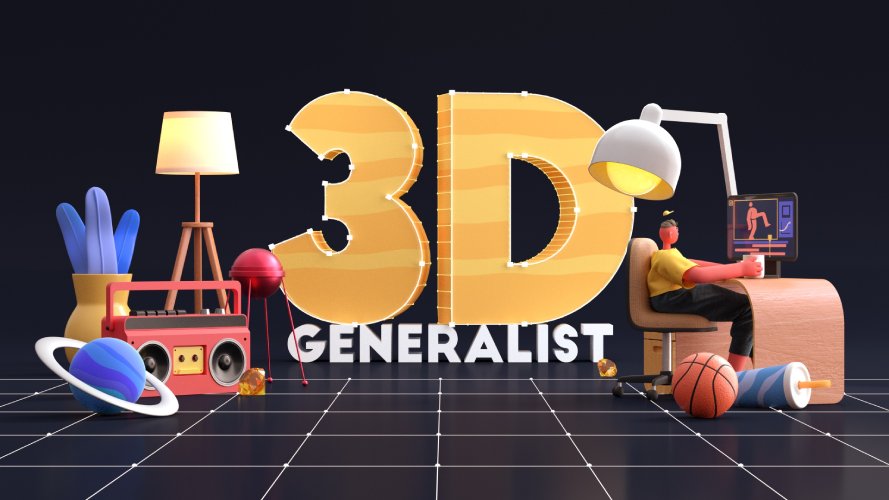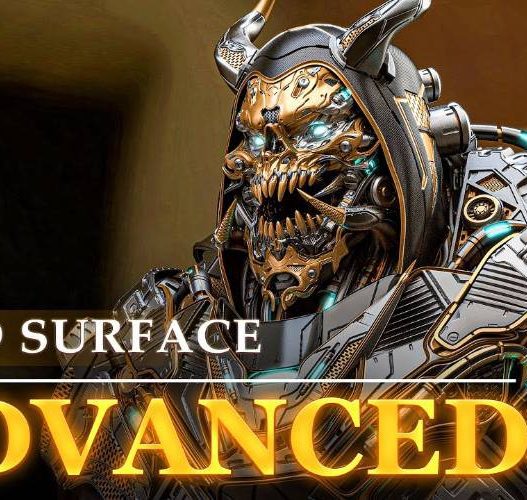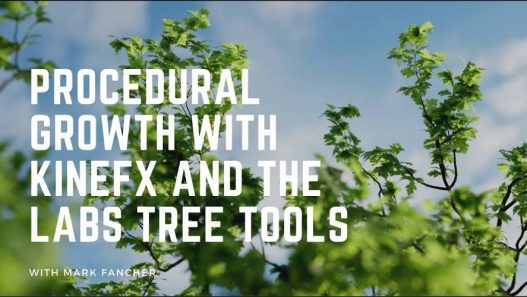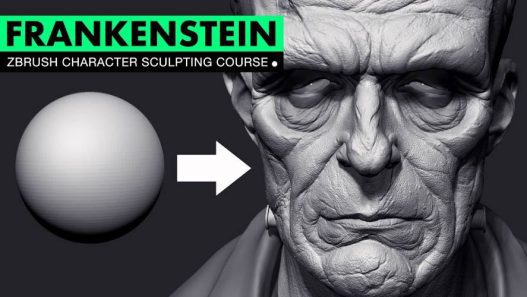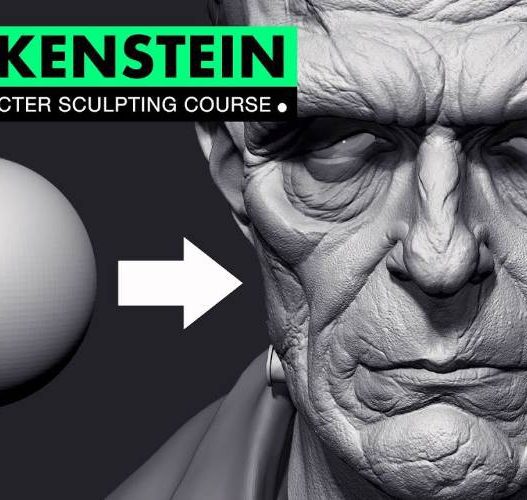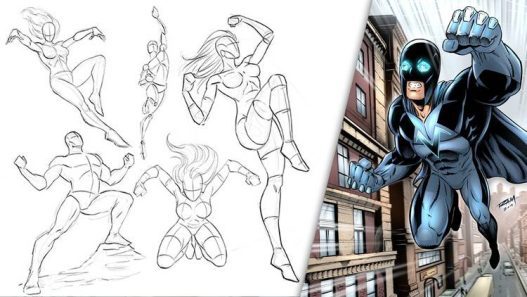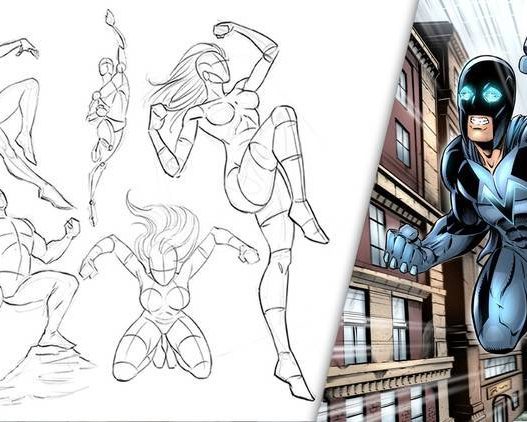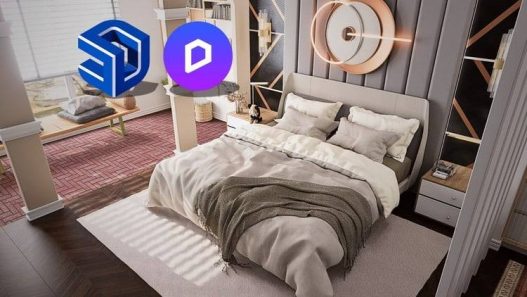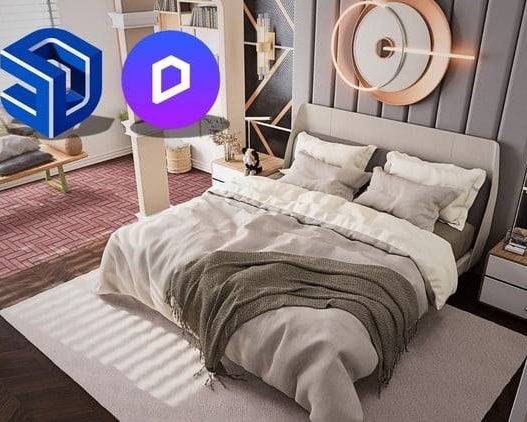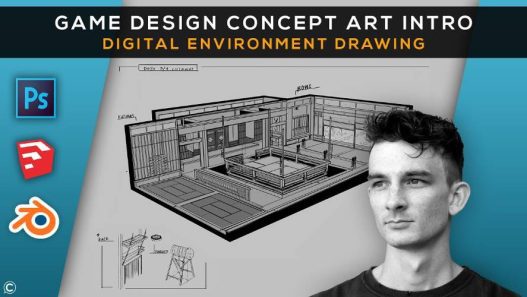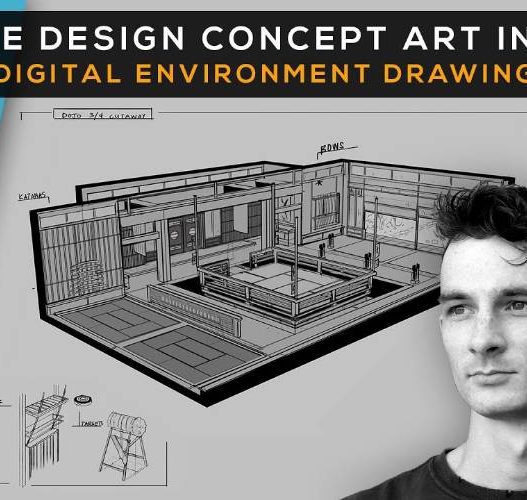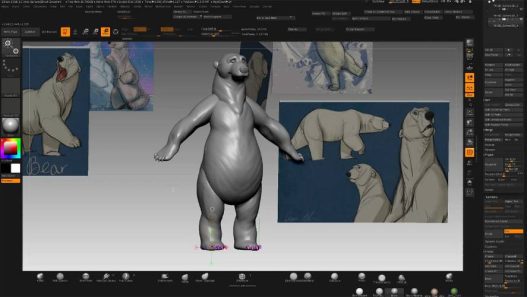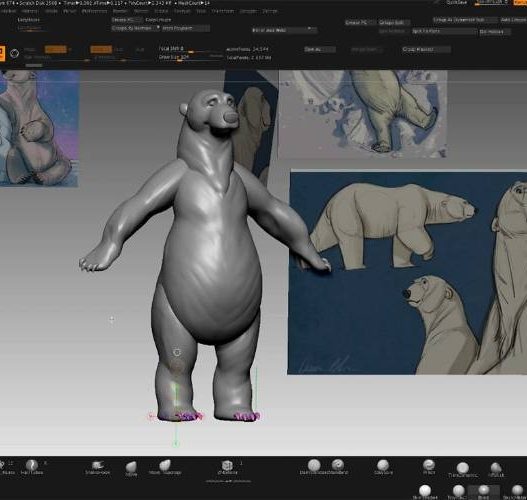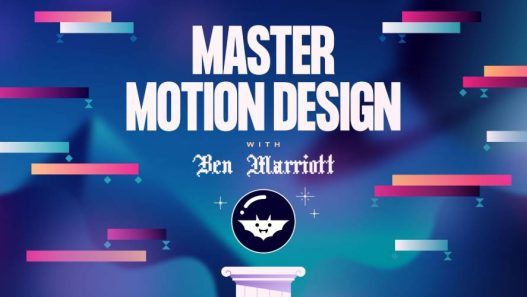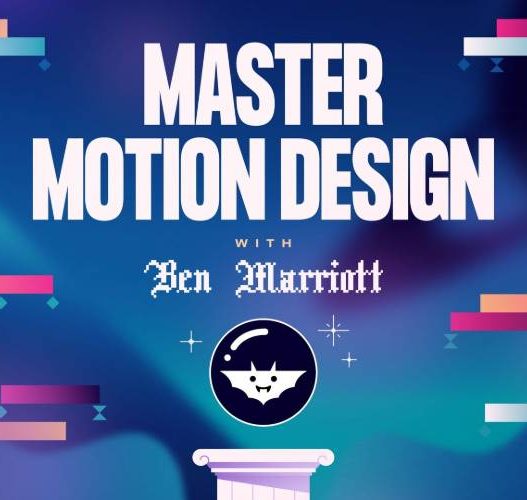Motion Design School – 3D Generalist Free Download
3D Generalist
What is this course about?
Want to create 3D character animations from scratch, but not sure where to start? This course will guide you through the entire classical 3d pipeline from start to finish.
We will start by modeling a character using traditional modeling techniques and retopology. You will learn how to rig a character from a single joint to custom complex Xpresso systems. As you learn the animation of the basic walk cycle using a custom rig, you will develop the intuition to connect the knowledge of rigging and animation stages.
You will also be able to add more life to your animations using realistic cloth simulation. In the final step, you’ll assemble the entire scene, create the materials and lighting, and render it into the finished animated video.

Complete pipeline
You will understand how to approach any 3D animation project and organize the workflow from simple modeling to rendering a complete animated scene.
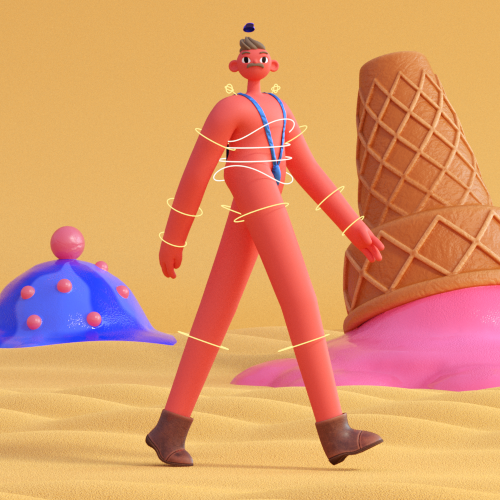
Character rig from scratch
to mind-blowing complex step by step to understand each rigging stage as deep as possible.
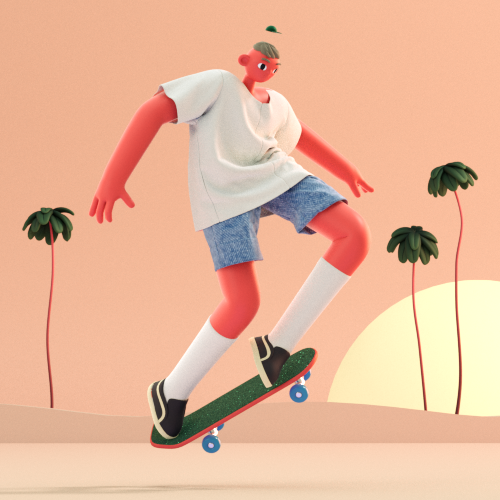
Real experience tricks
We will discuss how to deal with common problems that everybody faces in real projects and deeply understand their causes.
COURSE CURRICULUM
What will I learn?
LESSON #1
Modeling: Blocking
In the first lesson, we will quickly go over the necessary tools and create a base for the character using standard primitives. We will concentrate on the overall shape and silhouette of the character.

LESSON #2
Modeling: Head Topology
It is difficult to create a good rig and animate it, without a good topology
We will simplify the process, breaking down the model into key areas, and create a topology on top of the blocking model. You will learn to think in polygon loops, understand where they should be placed, and why they’re so important.

LESSON #3
Modeling: Body Topology
In this lesson, we’ll cover different modeling methods. We’ll see how different topology behaves, how to solve some of the topology issues that you’ll face in real-world projects. As a result, you will get the final character model.

LESSON #4
Rigging: Joints. Skin. Weights
To animate the character, we need to build a skeleton to which we will attach the character model. You will learn how to create joints and how to properly bind different parts of the geometry to different joints using weight painting and skin deformer.
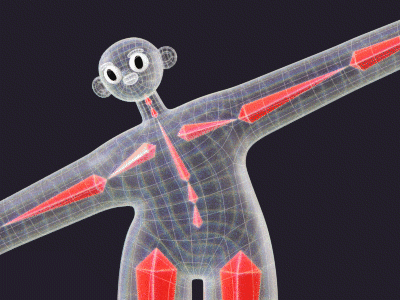
LESSON #5
Rigging: Controllers. Xpresso. IK/FK
To simplify the animation process we’ll show you how to create complex dependencies using Xpresso. It will allow you to control the joints using custom controllers. We’ll also learn how to build IK/FK switch system from scratch

LESSON #6
Rigging: Controllers. Forearm Twist. Bendy Bones
In this lesson, we’ll continue to build a custom rig. It contains a lot of tips and tricks about constraints, Xpresso, etc. You will learn how to fix the “forearm twist” problem and one of the methods to create a “Bendy bones” system.

LESSON #7
Rigging: Face Rig. Pose Morphs
You already know how to bind geometry to joints and have a basic idea of how it simplifies the animation process. In this lesson, you will learn some different technics to rig face features such as pose morphs and how to make them work together with the skin deformer.

LESSON #8
Animation: Walk Cycle. Key Frames. Curves
The rig is finally done! Now you are ready to bring the character to life. You will learn the basic approach to animate a walk cycle in Cinema 4D using your rig.

LESSON #9
Animation: Gimbal Lock. Rotation Order. “Knee Popping” fix
We’ll dive deep into some of the common pitfalls and not obvious problems that you’ll face in real-world projects and how to fix them such as “Gimbal Lock” and “IK Knee Popping”. We’ll finalize the walk cycle animation and make a perfect loop

LESSON #10
Cloth Simulation
Many of the motion designers are afraid of simulations because it is too complex,
But the truth is that it’s much simpler than it seems. The cloth simulation will bring your animations to a new level of realism and complexity. Once you nail it, you will use it everywhere.

LESSON #11
Assembling. Shading. Lighting. Render
You made a lot of complex technical stuff and it’s time to assemble the whole scene and make it beautiful! You will learn how to set up lighting, tune materials based on physical properties. Also, you’ll get a lot of tips about project optimizations, parametric materials, volumetric rendering, and much more.

Motion Design School – 3D Generalist Free Download
https://zeroupload.com/c266a52584cdf029cd17a1096373c9db
https://pixeldrain.com/u/3ggiEkAx
https://uploadhub.to/mzsdt82t7mog
